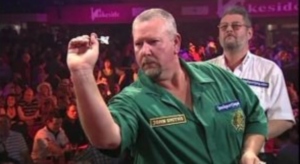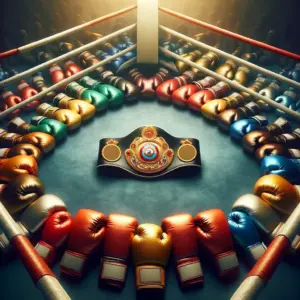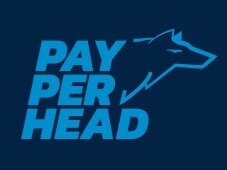 The one and only German to play for Manchester United in the Premier League was holding midfielder Bastian Schweinsteiger, who was signed for the Red Devils by Louis van Gaal, on a three-year contract, on July 13, 2015. Schweinsteiger made his Premier League debut on August 8, 2015, replacing Michael after an hour during a 1-0 victory over Tottenham Hotspur at Old Trafford in the opening match of the 2015/16 season.
The one and only German to play for Manchester United in the Premier League was holding midfielder Bastian Schweinsteiger, who was signed for the Red Devils by Louis van Gaal, on a three-year contract, on July 13, 2015. Schweinsteiger made his Premier League debut on August 8, 2015, replacing Michael after an hour during a 1-0 victory over Tottenham Hotspur at Old Trafford in the opening match of the 2015/16 season.
However, he subsequently fell out of favour with José Mourinho, who replaced van Gaal on May 27, 2016 and was, at one point, banished to training with the under-23 squad, thereby limiting his opportunities for first-team football. All told, Schweinsteiger made just 18 appearances for the Manchester United first team, before completing a move to Chicago Fire on March 21, 2017, where he remained until his retirement from professional football on Pctober 8, 2019.
Bavarian town of Kolbermoor, near Munich, on August 1, 1984, Schweinsteiger originally signed for Bayern Munich as a 14-year-old, but went on to become a mainstay of the senior first team, making 500 competitive appearances and earning himself the nickname of ‘Fußballgott’ or, in English, ‘Football God’. At international level, he was similarly ever-present, making 121 appearances for the German national between 2004 and 2016. Former manager Joachim Löw, who led Germany to victory in the 2014 FIFA World Cup, said that Schweinsteiger was ‘certainly one of the greatest players Germany has had’.
To avoid any confusion, two other German players, midfielder Markus Neumayr and goalkeeper Ron-Robert Zieler were on the books at Old Trafford, between 2003 and 2006 and 2005 and 2008, respectively, but neither ever played for the first time, in the Premier League or elsewhere. Zieler came the closest of the pair to first team action, being named as an unused substitute in a League Cup match against Middlesbrough at Old Trafford on September 23, 2008.
One of the epic battles / fights mentioned in the previous memorable boxing trilogies post. The phrase they don’t make em like this anymore comes to mind, as Muhammad Ali takes on Joe Frazier for a third time, in a boxing trilogy for the ages!
 There are a few contenders for what was arguably the worst leg in the history of professional darts and, weirdly, all of them involve an Australian. New South Walean Simon ‘The Wizard’ Whitlock has twice staked his claim at the Professional Darts Corporation (PDC) World Championship at Alexandra Palace, London. In December, 2018, he and opponent Martin Schindler missed 22 darts at a double between them in the third leg of their first round match, although Whitlock did average 87.42 and eventually won the match 3-1. In December, 2022, Whitlock and Christian Perez again missed nine darts apiece at a double in the third leg of the deciding set in their first round match, which Whitlock won on double 1 after 30 darts.
There are a few contenders for what was arguably the worst leg in the history of professional darts and, weirdly, all of them involve an Australian. New South Walean Simon ‘The Wizard’ Whitlock has twice staked his claim at the Professional Darts Corporation (PDC) World Championship at Alexandra Palace, London. In December, 2018, he and opponent Martin Schindler missed 22 darts at a double between them in the third leg of their first round match, although Whitlock did average 87.42 and eventually won the match 3-1. In December, 2022, Whitlock and Christian Perez again missed nine darts apiece at a double in the third leg of the deciding set in their first round match, which Whitlock won on double 1 after 30 darts.
However, the player generally considered to be responsible for worst leg in the history of professional darts was Australian former professional Anthony ‘Fleety’ Fleet, who did so on his one and only appearance at the British Darts Organisation (BDO) World Championship at Lakeside Country Club in Frimley Green, Surrey. Drawn against former BDO World Champion Martin ‘Wolfie’ Adams in the first round, Fleet was clearly overcome by nerves, to the extent that he not only had problems throwing his darts accurately, but also passing them from hand to hand and, at one point, even standing steadily at the oche.
His first twelve darts yielded 26, 41, 60 and 60, followed by an excrutiating passage of play in which he hit single 1, single 1, dropped his third dart on the floor and, having taken a moment to compose himself, hit treble 1 for a total of 5. At that point, commentator David Croft remarked, ‘A long way to go yet, but one of the worst starts I’ve ever seen a player make to a match here’. He wasn’t kidding; Fleet threw his next dart into double one.
Further haphazard throws of 22, 80 and 11 followed, before Adams finally put him out of his misery, although he needed 26 darts to do so, having missed three darts at double 12 and another at double 6. Fleet never recovered, losing the match 3-0 without winning a leg and recording a paltry three-dart average of 65.34.

 In boxing, few scenarios captivate the public like a trilogy, where fighters repeatedly go to war, engaging in epic matchups that are by their very nature – (the viewers desire for rematch after rematch!) destined for the history books. There are several memorable trilogies we could turn our attention to, so we’ve selected three from across the decades that in our view, definitely make the grade. In you’re too young to have seen some first time around, check them out on Youtube sometime. Sure you likely already know the outcomes, but these are unmissible encounters that deserve us returning to on occasion.
In boxing, few scenarios captivate the public like a trilogy, where fighters repeatedly go to war, engaging in epic matchups that are by their very nature – (the viewers desire for rematch after rematch!) destined for the history books. There are several memorable trilogies we could turn our attention to, so we’ve selected three from across the decades that in our view, definitely make the grade. In you’re too young to have seen some first time around, check them out on Youtube sometime. Sure you likely already know the outcomes, but these are unmissible encounters that deserve us returning to on occasion.

